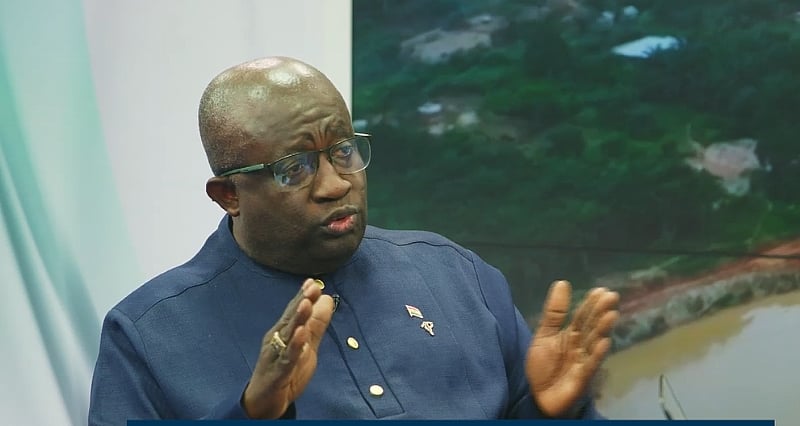The debate over how to address the pervasive issue of illegal mining, commonly known as “galamsey,” in Ghana has intensified, with differing viewpoints emerging regarding the efficacy of declaring a State of Emergency. Dr. Anthony Aubynn, CEO of the Petroleum Hub Development Corporation, has voiced his opposition to such a drastic measure, arguing that it is unnecessary and that the government possesses adequate resources and strategies to effectively combat the problem. He maintains that the issue requires sustained, strategic action rather than a temporary emergency declaration.
Dr. Aubynn’s perspective contrasts with the election pledge made by the Mahama administration to declare a State of Emergency on galamsey if elected in 2024. While acknowledging the seriousness of the issue and the Mahama administration’s proposed approach, Dr. Aubynn contends that existing mechanisms, if properly utilized, are sufficient to curb illegal mining activities. He emphasized the ongoing efforts of the Minister of Lands and Natural Resources, Samuel Abu Jinapor, highlighting the minister’s palpable commitment to tackling the problem. Dr. Aubynn believes that employing the available resources and strategies represents a more effective and sustainable solution than a temporary state of emergency.
The core of Dr. Aubynn’s argument lies in the belief that declaring a State of Emergency offers no inherent advantage over the consistent application of existing laws and resources. He argues that the government already possesses the “arsenals” needed to combat galamsey, encompassing legal frameworks, enforcement agencies, and technological tools. He emphasizes that long-term success hinges on sustained efforts and strategic implementation rather than resorting to extraordinary measures that might have limited impact. Furthermore, he suggests that the government’s current actions, led by the Minister of Lands and Natural Resources, demonstrate a commitment to tackling the issue, even if the desired outcomes haven’t yet been fully realized.
The counterargument, however, posits that the entrenched nature of galamsey necessitates a more drastic approach. Proponents of a State of Emergency believe that the current strategies have proven insufficient to control the widespread environmental degradation and social disruption caused by illegal mining. They argue that a temporary suspension of certain rights and freedoms, combined with intensified enforcement efforts, is necessary to disrupt the complex networks involved in galamsey operations. This perspective views a State of Emergency as a necessary shock to the system, allowing for a more forceful and effective crackdown on illegal activities.
The debate reflects a deeper disagreement about the nature and scale of the galamsey problem. While Dr. Aubynn views it as a manageable issue that can be addressed through existing mechanisms, proponents of a State of Emergency see it as a national crisis requiring extraordinary measures. This difference in perception shapes their respective approaches, with one favoring a sustained, strategic approach and the other advocating for a more immediate and forceful intervention. The ultimate decision on how to proceed rests with the government, balancing the need for effective action with the potential implications of declaring a State of Emergency.
The discussion surrounding galamsey and the potential for a State of Emergency highlights the complexities of environmental policy and resource management. It underscores the need for a comprehensive and multi-faceted approach that addresses the underlying factors driving illegal mining, including poverty, unemployment, and weak governance. Beyond the immediate question of a State of Emergency, the long-term solution likely involves a combination of enforcement, community engagement, economic diversification, and sustainable resource management practices. It also necessitates addressing the demand side of the equation, focusing on the international markets that fuel the illegal trade in gold and other minerals. Ultimately, a successful strategy will require collaboration among various stakeholders, including government agencies, local communities, civil society organizations, and international partners.














